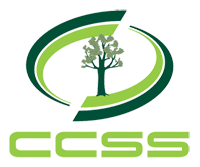Development of a RTD roadmap which will ensure the economically and technically feasible deployment of communications solutions for rural areas and maritime regions which allow the universal deployment of the Information Society. This thematic network will bring in technology foresight and business model propositions to overcome the discriminatory gap found in rural areas access to the Information Society. The network will have a core group of partners covering the EU and NAS countries, the Local Development experience and the different technologies involved in visionary Rural Area ICTs. The wide constituency will be invited to participate in the meetings which will form the project backbone. Dissemination to public at large, in all the EU rural areas and to policy makers and opinion drivers is foreseen in the proposal.
OBJECTIVES
This Thematic Network aims to build a strategic RTD roadmap which will ensure the economically and technically feasible deployment of information and communications solutions for rural areas (including also maritime regions and islands).The project will analyse: trends in technology development of equipment needed and foreseen; deployment of services which integrate the equipment; and knowledge management development which will allow the integration of the above for the globalised rural work and life environment. The Thematic Network will analyse different scenarios of joint public and private initiatives and business models to be constituted in the near future. RURAL WINS solution will lower the discriminatory gap nowadays existing between rural and urban areas as regards broadband accessibility and applications deployment. As a result a broad constituency will have been formed around the proposed Information Society business models.
DESCRIPTION OF WORK
The Thematic Network has been designed to meet the compromise between the necessary participation from a wide typology of problem constituents and the needed efficiency to obtain results in a short period of time. This compromise has been met by nesting the project participants around three layers of contribution. The inner layer or project consortium is formed by the contracting partners who will be responsible for developing the workshops preparatory work and who will represent the opinions of the different types of players. They form a complete subset of the constituency sample. The outer layer is formed by the broad constituency with interest in the technology development of the rural world. This will include technology providers and integrators, consultancies, telecom operators, service providers, rural development agencies, local and national government, EC directorates and regulatory bodies. The participants in this layer will be identified by the partners and will be basically passive participants: they will receive information about the progress of the project, and will be the objective public of the dissemination activities. They may be projects consortia or individual organisations. They will be invited to become members of the Thematic network. The intermediate layer is formed by a reduced sample of the outer layer. Its members will be selected by the contracting partners and will represent all the involved agents, and a significant part of the EU geography. They will be associated to contractors, will participate in project concertation meetings and will receive materials produced by the consortium partners. They will form the Thematic Network Membership. They will participate at their own expenses. The first three workpackages in which the project is divided are dedicated to explicit the current and foreseen status of e-technology deployment in rural and maritime areas, including the elaboration of business model propositions which could apply feasibly to all involved agents. Workpackage four is dedicated to interact during the duration of the project with the involved agents and to establish a broad constituency which would take part in the development of technology solutions. Dissemination activities will take place under this workpackage. Workpackage five will elaborate on the findings of the study and will build the visionary technology roadmap for the next decade. Workpackage six concerns with project management, consortium coordination, coordination with other external actions, and evaluation of project progress. The execution of the workpackages will be done through the celebration of concertation meetings in the form of workshops where the issues under discussion will be elaborated and conclusions will be drawn. After the end of the project, self financing mechanisms will be implemented.
